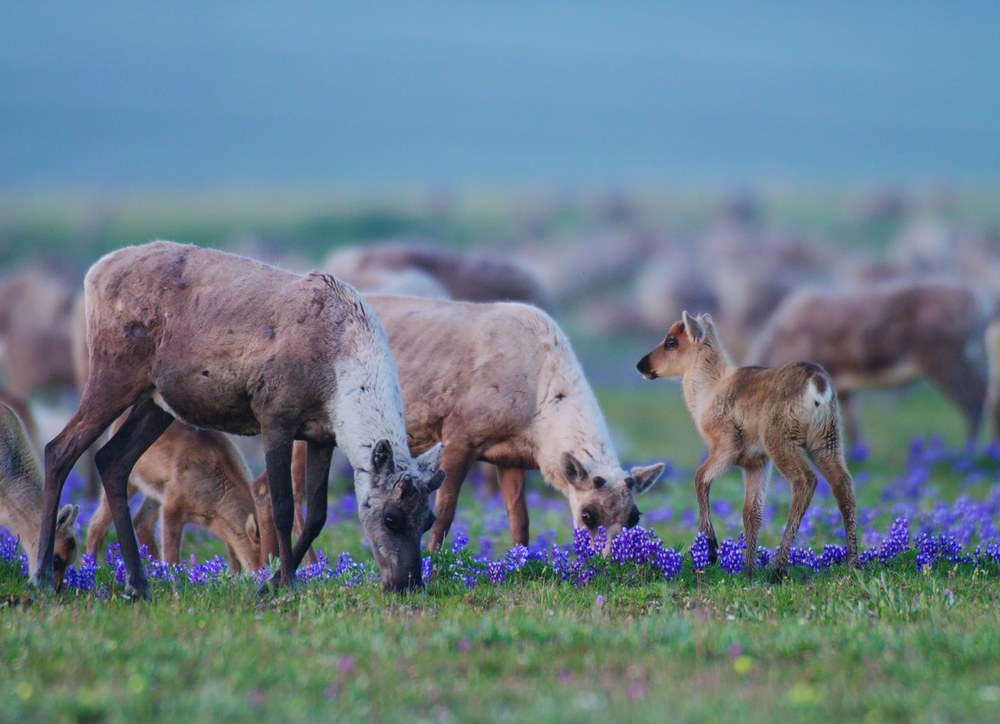
Today, 40 senators led by Senators Ed Markey (D-MA) and Michael Bennet (D-CO) and a bipartisan group of representatives led by Representatives Jared Huffman (D-CA), Brian Fitzpatrick (R-PA), Ruben Gallego (D-AZ) and Frank LoBiondo (R-NJ) introduced bills in the Senate and House to designate the Coastal Plain of Alaska’s Arctic National Wildlife Refuge as wilderness.
For over three decades, support for protecting the Arctic Refuge has been diverse and extensive, reaching unparalleled levels in the 115th Congress.
On April 3, 2015, the first-ever administrative Wilderness recommendation for the Arctic Refuge was transmitted to Congress. This recommendation was the result of a multiyear process by the U.S. Fish and Wildlife Service that included extensive public input. Of the more than 600,000 comments received, 96% were in support of Arctic Refuge protections with comments from all 50 states, conservation and religious leaders, Alaska Natives, communities of color, outdoor enthusiasts and veterans from across the U.S.
Nevertheless, the oil and gas industry and their allies in Congress have targeted the Coastal Plain, the Refuge’s 1.5 million-acre biological heart, for development. Disregarding the ecological, cultural and spiritual values of the Coastal Plain, a number of bills have been introduced in this Congress to open the area to industrial development. Past Congresses have seen myriad failed efforts to add Refuge drilling provisions to moving legislation, including budget bills and defense appropriations.
Braided River, the conservation imprint of Mountaineers Books, has been active in work to protect the Arctic Refuge since Seasons of Life and Land was published in 2003.
As Helen Cherullo, Executive Director of Braided River notes, “Protecting the Arctic Refuge now offers an opportunity for this Congress to represent the interests of the vast majority of Americans. 91% of all voters think it is important to protect natural places for future generations. Over seven in 10 Americans would prefer to see the development of alternative energy rather than fossil fuels. Why should we destroy the bountiful Coastal Plain of the Arctic Refuge when alternate energy solutions that support family-wage jobs and clean air and water are well within our grasp?”
One of the largest intact ecosystems in the world, the Arctic National Wildlife Refuge is a place of breathtaking natural beauty and untouched, rugged wildness. Its remarkable glaciated peaks, northern forests and fragile tundra provide vital habitat for denning polar bears, a huge migrating herd of caribou, wolves, muskoxen and nesting area for more than 200 migratory and resident bird species.
The Arctic National Wildlife Refuge was first established as the Arctic National Wildlife Range on December 6, 1960 by President Dwight Eisenhower, who recognized “unique wildlife, wilderness and recreational values.” In 1980 Congress passed, and President Jimmy Carter signed, the Alaska National Interest Lands Conservation Act. The act designated wilderness for most of the original range area, while expanding the acreage to the south and renaming the entire area the Arctic National Wildlife Refuge.
In addition, the act specified additional purposes for the Refuge, including conserving wildlife populations and habitats in their natural diversity, as well as protecting subsistence opportunities.
“The very existence and identity of the Gwich'in are under threat,” said Bernadette Demientieff, Executive Director, Gwich’in Steering Committee. “We want to continue to live our cultural and traditional life with the Porcupine Caribou Herd. Any development to the Refuge or the Coastal Plain would be a human rights violation. Our identity is not negotiable.”
Learn more about the Arctic Refuge here.
It is time for Congress to act and pass wilderness legislation for the Arctic National Wildlife Refuge once and for all.
Photo: Porcupine caribou herd, Florian Schulz
 Mountaineers Books
Mountaineers Books
